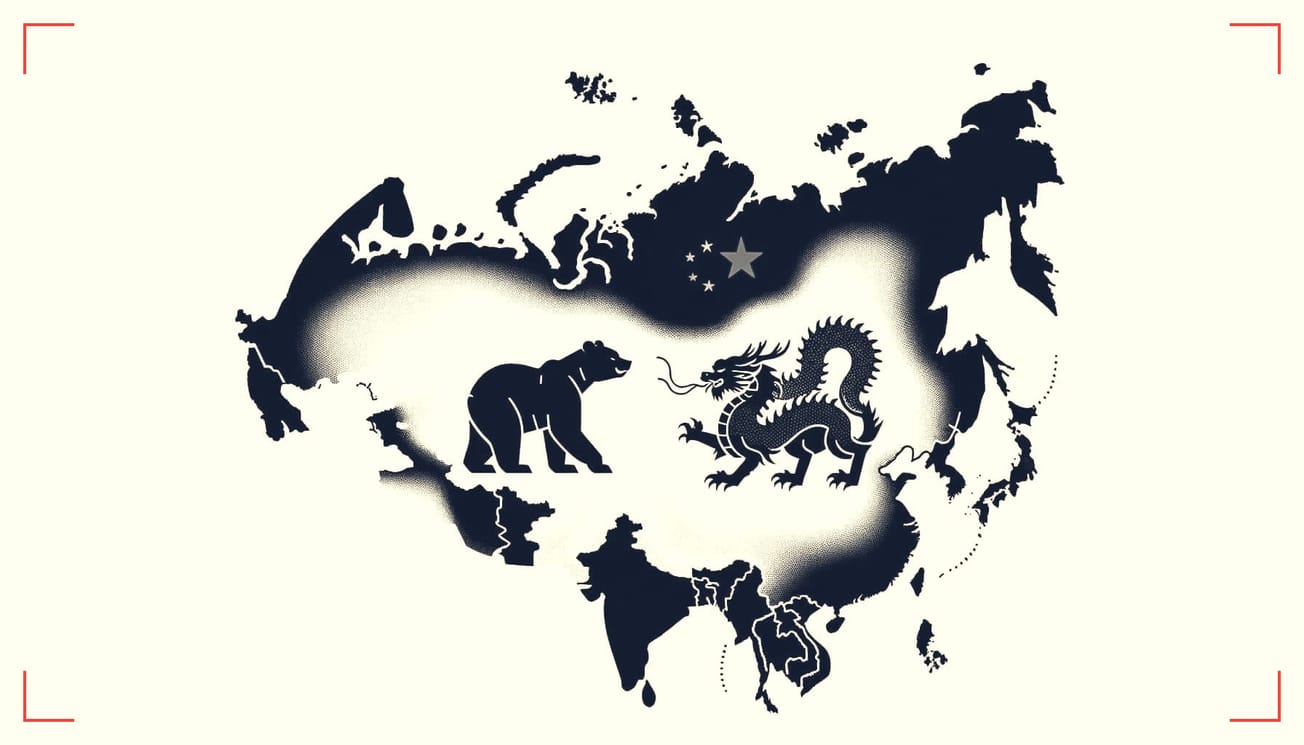

Semiconductor chips are vital components of smartphones, laptops, and cameras, but they also have the potential to redefine the global military landscape. This is due to their essential role in AI development and deployment, the defense applications of which could reshape warfare forever.
At a 2021 hearing, the National Security Commission on Artificial Intelligence concluded: “If a potential adversary bests the United States in semiconductors over the long term or suddenly cuts off U.S. access to cutting-edge chips entirely, it could gain the upper hand in every domain of warfare.” Semiconductor chips are therefore not only crucial for maintaining a strategic global tech advantage, but also in maintaining an upper hand in the conflicts of tomorrow. This helps explain why the United States is so concerned about China’s ability to manufacture high-end semiconductor chips, and why in recent years Washington has expanded restrictions on the export and transfer of this dual-use technology to certain countries, notably China.
The Tech War: An Overview of the Competition Between the United States and China
The US Entity List, CHIPS, and Diplomacy
The semiconductor industry was pushed to the forefront of geopolitical competition during the Trump administration when a series of new restrictions on Chinese tech giant Huawei were announced. In May 2019, the Trump administration added Huawei and other tech firms to the Entity List ensconced in the Export Administration Regulations maintained by the US Department of Commerce Bureau of Industry and Security. This designation not only prohibits these firms from purchasing US-manufactured components, but extends to items produced abroad that are derived from or incorporate significant US technology or intellectual property. Then, in 2020, the Semiconductor Manufacturing International Corporation (SMIC), China’s largest chip manufacturer, was added to the list. In the same year, the UK government, after reviewing an assessment from the National Cyber Security Centre, banned Huawei from the country’s 5G network, due to pressure from the Trump administration. This series of tech restrictions dealt a severe blow to Huawei’s market share, which fell out of the top five globally in Q4 2021.
While many anticipated a departure from the policies of the Trump administration, the Biden administration has not only maintained a tough stance toward China, but has further broadened the scope of restrictions.
These policy changes quickly precipitated international political and diplomatic maneuvering. In December 2018, Canadian officials arrested Meng Wanzhou, the CFO of Huawei and daughter of the company’s founder, at Vancouver Airport over allegations of fraud and US sanctions violations. One week after Meng’s arrest, the Chinese government retaliated by arresting two Canadian nationals, Michael Kovrig and Michael Spavor (the "Two Michaels Case"). It would take years of negotiations and a phone call between Presidents Xi Jinping and Joe Biden before Canada’s British Columbian court ended the proceedings against Meng on September 24, 2021. The two Michaels were released by the Chinese government on the same day, and the case against Meng was dismissed in 2022.
While many anticipated a departure from the policies of the Trump administration, the Biden administration has not only maintained a tough stance toward China, but has further broadened the scope of restrictions. In August 2022, the US government passed the CHIPS and Science Act, which aims to “keep the United States the leader in the industries of tomorrow, including nanotechnology, clean energy, quantum computing, and artificial intelligence.” As part of these ambitious plans to move chip manufacturing capacity back onshore, the administration introduced subsidies for companies operating in this space, but prohibits those benefits from being used to conduct business operations in China. In October 2022, this was followed by a new series of export controls, including regulation that prohibits US businesses such as Nvidia, AMD, and KLA from selling to China even the equipment and technologies used to produce semiconductors for the most advanced sub-14nm chips.
Chinese Economic Espionage as a National Strategy
The Chinese government has consistently articulated its strategic objective to redefine and dominate the global tech landscape. This goal is driven by acknowledged gaps in key technological areas, especially when benchmarked against United States and Western capabilities. In an effort to bridge this technological gap with the West, China initiated the Thousand Talent Plan (TTP) in 2008.
The TTP is a state-sponsored program aimed at the acquisition and transfer of advanced technologies and intellectual property to China to benefit its own technological base. While it is not uncommon for nations to have programs designed to attract academic and scientific talent, there is evidence suggesting that the TTP has been leveraged by Chinese entities to engage in the systematic appropriation of sensitive technologies—particularly from the United States. According to FBI investigations, participants in the TTP are required to capture and transfer foreign research and technologies to Chinese institutions, and further, to recruit new colleagues to spread the collection effort and extend the program's reach. In April 2023, former Harvard professor Charles Lieber was accused of making false statements about his income from the Wuhan University of Technology (WUT) and his connection with the TTP during his tenure as the Chair of Harvard University’s Chemistry and Chemical Biology Department. According to Lieber’s testimony during court hearings, WUT provided a bonus income of up to $50,000 per month in addition to cost of living subsidies of up to $150,000. Lieber, in exchange for this financial support, began funneling his research to WUT.
Although Beijing officially discontinued the TTP in 2018 following scrutiny from US authorities, the program was actually maintained and covertly rebranded ‘Qiming’ or ‘Enlightenment.’ A Reuters investigation analyzing over 500 government documents dated 2019-2023 showed that the newly rebranded initiative is actually more ambitious and provides even more generous incentives, including home-purchase subsidies between $420,000 to $700,000. This disclosure not only underscores PRC ambitions to penetrate and exploit foreign research institutions and companies at all stages of growth, it also demonstrates an unyielding resolve to undermine US technological advantages using grey zone, iterative, and deniable initiatives like TTP/Qiming.
Participants in the TTP are required to capture and transfer foreign research and technologies to Chinese institutions, and further, to recruit new colleagues to spread the collection effort and extend the program's reach.
In addition to espionage, Beijing has announced export controls of its own. The new policy shift will restrict the export of key materials such as gallium and germanium, which are crucial in high-end semiconductor manufacturing. The Chinese government also announced its plan to invest $40 billion in its domestic chip industry. Moreover, China banned US-based memory chip manufacturer Micron from Chinese infrastructure projects. On August 1st, Beijing imposed an export ban on essential manufacturing materials to Japan, including gallium and germanium, directly targeting its advanced manufacturing sector as well.
The race for technological dominance between the United States and China has significantly intensified over just the past few years. Starting with the ban on tech giants such as Huawei in 2019, these measures have expanded to other countries, industries, and launched new domestic political currents in both countries. What some had described as a “trade war” is now a technological arms race, and will continue to have profound impacts on diplomatic relations between China and the West, and moreover, on the Western companies driving tech dominance.
The Multinational Companies Driving Tech Dominance
In the ongoing technological competition between the United States and China, semiconductor chips have emerged as the central focus. Companies with the ability to produce advanced chips find themselves positioned squarely at the intersection of this high-stakes confrontation between the two global powers. In this environment, several giant multinationals find themselves having to navigate a delicate balance between adhering to stringent, shifting regulations and safeguarding their vested interests.
TSMC
The Taiwan-based Taiwan Semiconductor Manufacturing Company (TSMC) is the world’s largest contract chipmaker, producing around 90 percent of the world’s leading-edge semiconductors used in AI and quantum computing applications. When TSMC revealed its blueprint for new manufacturing facilities in Phoenix, Arizona, the move was met with applause from both the White House and Taipei. During a visit to TSMC’s construction site in Arizona last year, President Joe Biden called the forthcoming factory a “game changer.” He added that TSMC’s investments in the United States are “helping us build and strengthen the supply chain here in America.” Taiwanese president Tsai-Ing Wen also endorsed the decision during the Governor of Arizona’s visit to Taiwan this August, positing that “Arizona’s new plants will help Taiwan and the US create more secure and resilient supply chains.”
While both countries remain optimistic, the massive endeavor has not been without its hurdles. Developers have experienced local challenges in Arizona, including backlash from unions, a lack of sufficient training programs, and disagreements between local and international workers. American workers at the construction site expressed their concerns about the lack of safety regulations, disorganized managers, and the influx of less costly labor from Taiwan. TSMC responded with surprise at domestic US workers for their perceived lack of necessary skills and work ethic.
Instead of putting billions of dollars into growing a new chip industry, according to Chang, the best course of action is to instead invest in the security of Taiwan.
The issues surrounding TSMC and its Arizona plant are a manifestation of the difficulties facing the United States chip industry, and Taiwan’s role in the tech war between its ally across the Pacific, and its neighbor across the Strait. Although Washington is eager to mitigate the geopolitical risk by moving some advanced chip manufacturing out of Taiwan, some argue it would be a difficult, if not impossible, task to fundamentally reroute international supply chains in this way. Morris Chang, the founder of TSMC, repeatedly expressed his concerns about the United States’ decision to foster its domestic chip industry and TSMC’s decision to build new plants there. When former Speaker of the US House of Representatives Nancy Pelosi visited Taiwan in August 2022, Chang remarked that the United States was “terribly naive” if it believed that the CHIPS Act and its subsidies will be able to create a sustainable domestic chip manufacturing capability with such little reliance on globalized supply chains. Instead of putting billions of dollars into growing a new chip industry, according to Chang, the best course of action is to instead invest in the security of Taiwan. Indeed, as TSMC has gained a monopoly in high-end chip manufacturing, any conflict between China and Taiwan would have a significant impact on the current global semiconductor supply chain, as well as US efforts to win the tech arms race that is only set to further escalate.
ASML
ASML is another company that has found itself at the forefront of technological competition between China and the U.S. Located in Veldhoven, the Dutch company has become the world’s most important supplier of Extreme Ultraviolet (EUV) and Deep Ultraviolet (DUV) lithography systems, with nearly 100% of the market share. Due to the indispensable role Dutch technologies play in fabricating the most advanced chips available, the US government crafted a series of controls aimed at preventing the PRC from accessing the company’s IP. In 2019, the Dutch government, under pressure from the Trump administration, announced controls pertaining to its export of EUV lithography machines to China. Specifically, these are the machines that are “used in high-volume manufacturing to create the highly complex foundation layers of the most advanced microchips (7nm, 5nm and 3nm nodes).”
In June 2023, after an “intense discussion” between US government officials and Micky Adriaansens, the Dutch Minister of Economic Affairs and Climate Policy, the Dutch government issued new restrictions prohibiting ASML from exporting its DUV lithography machines to China as well. The new restrictions, which took effect on September 1st, stipulate that ASML apply for a new license before exporting its DUV machines to end-users in China. Under this ban, ASML will not be able to sell Twinscan NXT:2000i, its most advanced DUV lithography machines to China after January 1, 2024. ASML CEO Peter Wennick expressed his concerns about the tech restrictions, stating that access to the Chinese market is essential, and these bans will only further drive China to develop its own domestic chip manufacturing capacity.
Nvidia and AMD
The tech war also has significant impacts on other major players such as Nvidia and AMD, the world’s leading manufacturers of graphics cards and other high-end silicon. On August 31, Washington expanded its restrictions on the export of Nvidia’s A100 and H100 chips that are used to accelerate machine learning tasks, this time not only to China but also the Middle East region as well, including Saudi Arabia and Iran (where re-export is deemed highly likely).
Huang asserted that the new wave of restrictions would bring “enormous damage” to US tech companies’ global earnings
Jenson Huang, the CEO of Nvidia, also expressed his concerns about this growing tech war during a Financial Times interview in May. Huang asserted that the new wave of restrictions would bring “enormous damage” to US tech companies’ global earnings, and that as US-China competition heats up, Nvidia leadership finds “our hands tied behind our back.” Huang stressed the immediate financial impact of restricted access to the Chinese market, echoing concerns in the industry. Without doubt, the Nvidia chief remarked, China is “a very important market for the technology industry” and the new restrictions will only contribute to Beijing’s efforts to grow its own domestic semiconductor manufacturing capabilities.
Huawei’s 7nm Chip
In late August, Huawei announced Mate 60 Pro, its latest flagship smartphone, during the US Secretary of Commerce Gina Raimondo’s visit to Beijing. The smartphone boasted its 7nm processor made by SMIC. Some expert analysts such as Dan Hutcheson described the announcement as a “slap in the face” to the United States, as it demonstrated China’s ability to produce its own chips despite being confronted by the surge in policy action from the U.S.
However, it remains unclear if Huawei will be able to mass produce these smartphones in the foreseeable future. Firstly, China’s chip industry remains heavily dependent on foreign technologies, cutting-edge methods, and equipment. As of 2023, 85% of China’s chip manufacturing equipment came from countries such as Japan, the United States, and the Netherlands. Given the Dutch government’s new restrictions, it should be more challenging for China to maintain its chip manufacturing capacity moving into 2024. Secondly, Huawei’s announcement prompted calls for further investigation from certain politicians in Congress, who argued that the current restrictions on China are not enough to curb the country’s technical advancements in semiconductor chips. Some hawkish Republicans including Mike Gallagher, Chair of the US House of Representatives Committee on China, demanded the Commerce Department impose even more comprehensive sanctions on Huawei and SMIC.
While the Commerce Department promised to look into the real manufacturing capability of the new 7nm chip, it still remains unclear if the United States will impose more sanctions on Huawei or other Chinese companies. Nevertheless, the United States will need to take a more pragmatic approach toward China if it wants to stay competitive in a new era increasingly characterized by the US-China tech arms race. Already, according to Bloomberg, the Semiconductor Industry Association (SIA) reported that Huawei is receiving an approximately $30 billion targeted injection from Beijing, and is quietly building a “secret” insulated supply chain network within China.
The Challenge of Strategic Balance: Looking Forward
The impacts of the tech war not only affect US-China relations but also the relationship between China and its neighbors in the Asia-Pacific region. While the United States has valid concerns about the connection between China’s chip industry, the military capabilities of its People’s Liberation Army (PLA), and an increasingly bellicose stance toward its neighbors, Washington should consider a more pragmatic approach if it wishes to remain competitive in the face of Chinese state-backed competition.
Although the United States has shown a significant commitment to developing domestic chip manufacturing, and restricting China’s access to top-tier equipment and IP, it also faces unprecedented challenges. The long-term financial sustainability of these new facilities, uncertainties around return on investments, and backlash from top US tech companies that would prefer a business-as-usual approach to the Chinese market are just a few of the hurdles. While China’s ability to develop its own high-end semiconductor chips remains unclear, it seems that Beijing will nevertheless marshal the full force and weight of the state to develop its own chip manufacturing industry regardless of any policy action from the West.
The logical conclusion is that the U.S. must carefully weigh its options and consider the long-term implications of these policy decisions. Striking a balance between restricting China's access to advanced technology and mitigating potential negative impacts on US and allied tech industries is crucial. The obvious danger here is that these restrictions will ultimately harm US economic interests and its global tech leadership. Furthermore, diplomatic and strategic considerations, including alliances and partnerships, must be fully evaluated and factored into Washington’s decision-making process. Ultimately, a calculated and holistic approach is essential in addressing this complex geopolitical challenge effectively.





